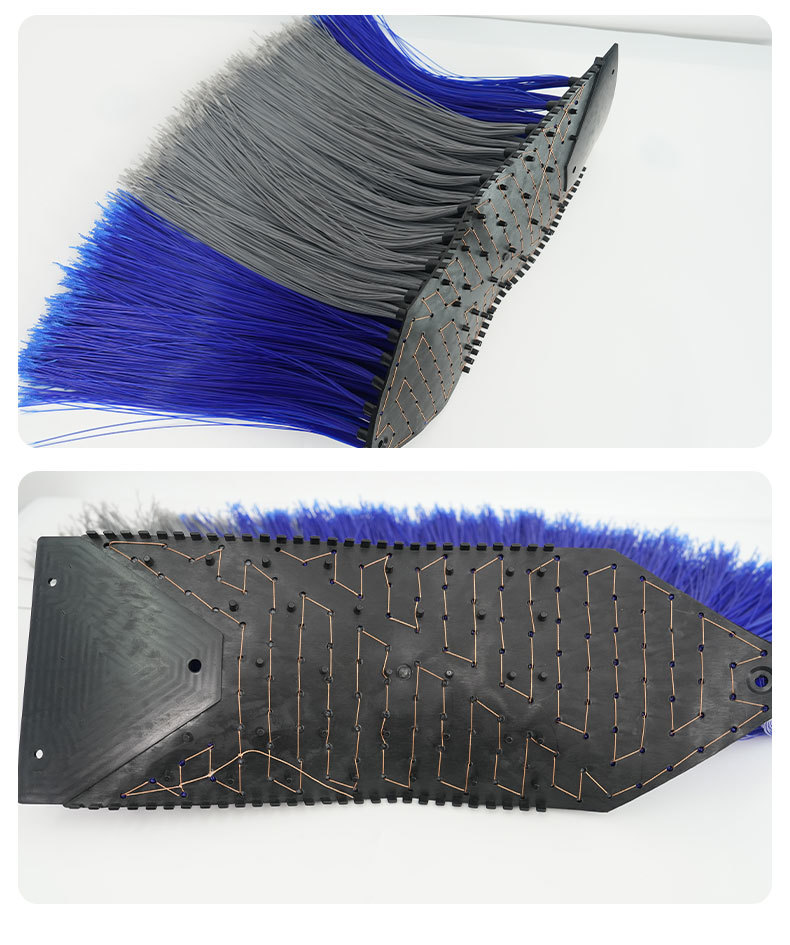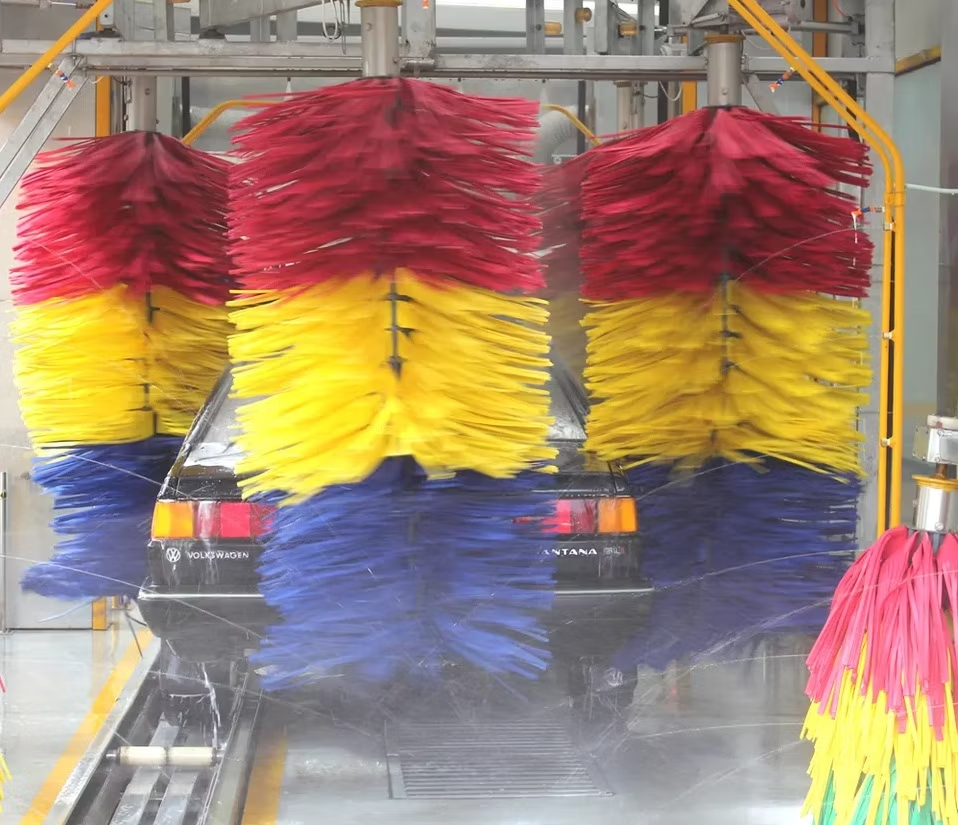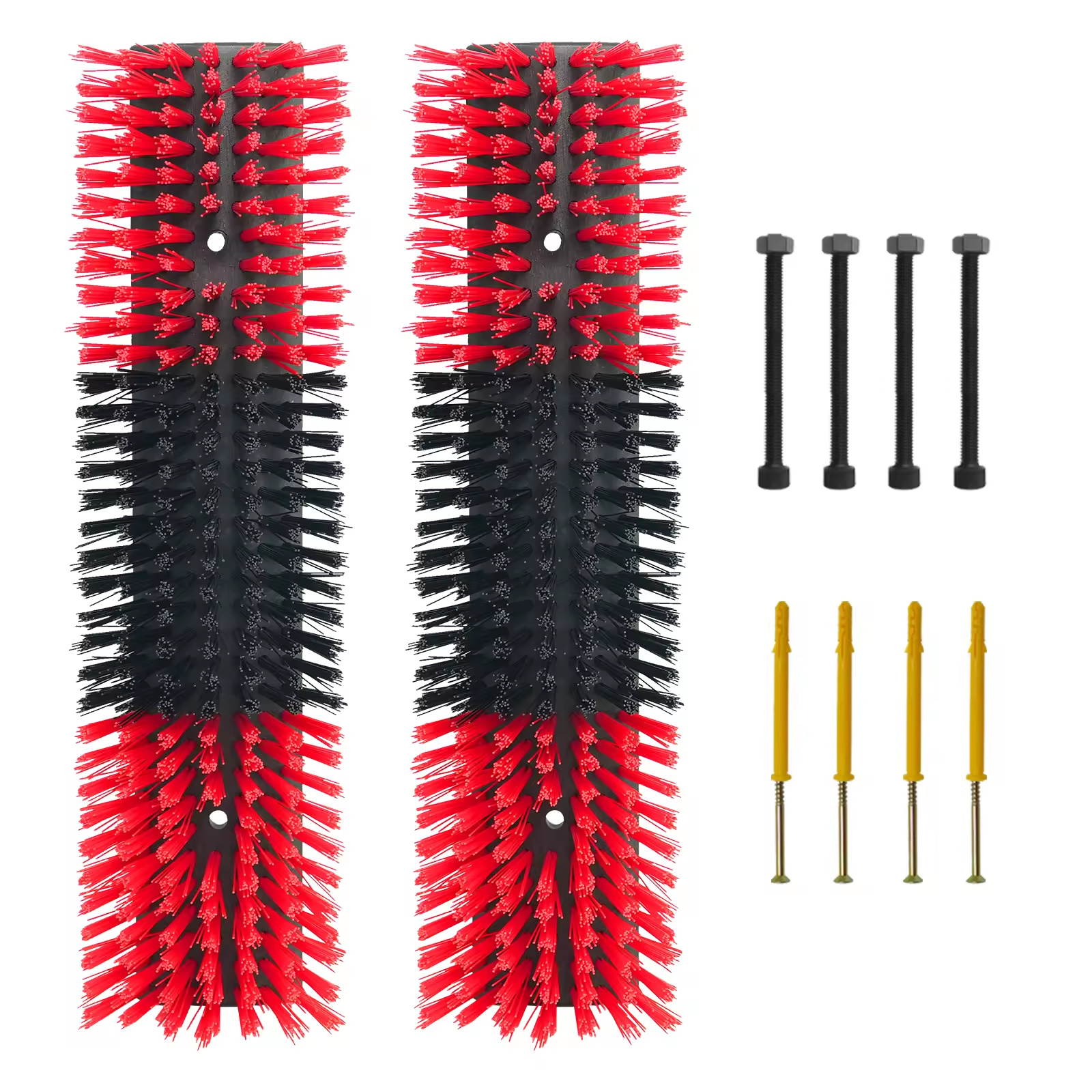Self-Producing Factory-Professional Manufacturer
How Fiber Brush Fully Automatic Car Wash Machines Affect Car Paint and Best Usage Tips
Aug 11,2025

Nowadays, automatic car wash has become a standard feature of many car wash shops. Its high efficiency and economical characteristics have attracted a large number of car owners. However, many people are cautious about it, or even avoid it, because there are rumors on the Internet that the fiber brush of the automatic car wash machine may damage the car paint. So, what is the truth?
The Efficiency and Economy of Automatic Car Washes
The reason why automatic car washes are affordable is mainly due to their efficient cleaning methods and low labor costs. Compared with manual car washes, automatic car washes can complete the cleaning process quickly and do not require too much manpower, so they can provide more economical car wash services.
- Efficiency and Speed: Manual washing takes at least 10 minutes per car, sometimes even exceeding 20 minutes, while an automatic car wash can complete the cleaning in a maximum of 5 minutes. In busy auto detailing shops, this significantly improves washing efficiency and reduces labor costs.
- Water Saving Advantage: An automatic car wash uses 10-12 liters of water per car, compared to 20-30 liters for manual washing, achieving a water savings rate of 10-20%. Furthermore, by utilizing recycled wastewater treatment technology, it not only meets environmental standards but also saves substantial amounts of water.
Types and Working Principles of Automatic Car Washes
So, what are the specific types of automatic car washes?
Automatic car washes are mainly divided into two categories: touchless and brush-type (fiber brush) automatic car washes. Touchless car washes use high-pressure water jets combined with various cleaning agents to complete the washing process, while brush-type automatic car washes use rotating brushes to clean the car surface.
The brush-type automatic car wash is a device that automatically cleans the car surface by combining rotating brushes with cleaning agents. Its brush material primarily uses high-density polyethylene (HDPE), known for its excellent wear resistance and cleaning effectiveness.
The Impact of Automatic Washing on car Paint
Car owners often worry about the friction between the rotating brushes and the paint of brush-type automatic car washes, potentially causing damage. However, these brushes are made of high-density polyethylene, a smooth, dust-resistant surface. Therefore, any impact on the paint is minimal and almost negligible. Simply put, there's no need to worry about damaging your paint when using a brush-type automatic car wash.
Precautions and Recommendations for Using Fiber Brush Automatic Car Washes
However, if your car has sand adhering to it, rather than just dust, extra caution is needed. In this case, it's recommended to rinse the car with water first before entering the car wash. Additionally, if low-quality brushes are used, they could also damage the paint. Therefore, before washing, you can observe or inquire about the type of brush used by the machine. Of course, if the car wash brushes have not been replaced for a long time, they could also potentially damage the paint.
Actually, there's no need to overthink car washing. cars are meant for driving, not for worship. If you're this concerned about washing, wouldn't driving on roads covered with stones and sand be even more nerve-wracking?
Tunnel Automatic Car Wash Brushes Revealed
In tunnel automatic car washes, the washing brush plays a crucial role, as it is the only part that directly contacts the car's paint surface. The quality of the fiber brush directly affects the washing results. While you might not notice it immediately, prolonged use of low-quality automatic car wash brushes will significantly diminish the paint's gloss over time. Currently, there are four main types of tunnel automatic car wash brushes on the market: cloth brushes, cotton brushes, fiber brushes, and foam brushes.
Cloth Brush: Long History but Short Lifespan
Cloth brushes were first introduced from Japan to Taiwan in the 1990s and then to mainland China. They offer decent cleaning power but have a short lifespan and easily trap grit. If you don't pre-rinse the car with a high-pressure water gun before washing, grit on the body can get caught in the cloth strips, leaving scratches. Cloth brushes also easily snag wiper blades; they need to be secured during use, otherwise, the wipers might be damaged. However, due to their low cost, they are still chosen by some manufacturers.
Cotton Brush: High Cleaning Power but Heavy Weight
Cotton brushes are the second generation of car wash brushes, offering very high cleaning power and significant water retention. However, non-woven cotton material, after absorbing large amounts of water, becomes much heavier, which can cause problems in smaller car wash machines. This type of brush was popular in China for less than two years before being largely abandoned by major manufacturers. It is now mainly used in large-scale car washing equipment.
Fiber Brush: Soft and Durable but Higher Cost
Fiber brushes represent the third generation of car wash brushes, made from special polymer materials. They are soft, difficult to break, and can be processed into various colors, making them visually striking during use. The fiber material offers good durability and softness, allowing the brushes to carry large amounts of water during cleaning, making the contact between the brush body and the car more lubricating. The tips undergo high-tech flocking treatment, further maximizing washing quality.
Foam Brush: Lightweight and Efficient but Higher Price
Foam brushes are the fourth generation of car wash brushes. Their characteristics are lightness, high cleaning power, and excellent water-shedding properties. Foam brushes are generally processed into thin strips, which are less effective for cleaning heavily soiled areas of the car. However, especially with horizontal installation methods, they effectively overcome the foam brush's overly soft nature. When brushing the car, they protect the paint surface while providing sufficient cleaning force, and their dehydration performance is good.
Overall, choosing the right car wash brush not only improves washing efficiency but also protects the paint and extends the car's lifespan. We hope this article helps you better understand the various types and characteristics of car wash brushes.
Hot Tags:
Contact Us
CEO: Alan
Email: alan@virostech.com
Phone: +86-15215693689
Sales Manager: Edith
Email: Edith@virostech.com
Phone: +86-15215693689










